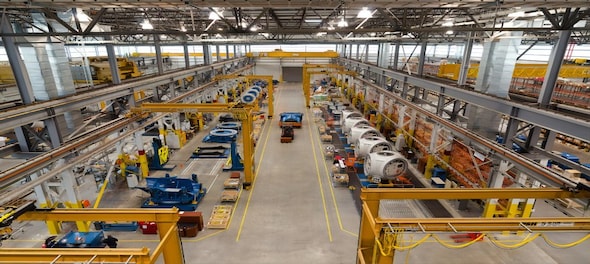
The pandemic brought several vulnerabilities in global manufacturing and value chain to the fore. It thus became imperative for businesses to establish a well-functioning and agile manufacturing unit for any future uncertainties. Digitization of the manufacturing industry essentially refers to the use of technologies such as AI, automation, robotics, cloud computing, big data, advanced analytics, etc., to streamline different aspects of the production process, starting from the ideation phase to the end user. With the pandemic accelerating the pace of digital adoption and companies leading the digital transformation path, the factories of the future are here today.
Introduction to Digital Manufacturing
To understand the significance of building resilient and sustainable processes for efficient and superior manufacturing, CNBCTV18.com, presented The Future of Digital Manufacturing powered by Infor. The masterclass conversation was joined by industry leaders in the sector such as Bino George, Director Solution Consulting, Infor India; Rakesh Dubey, Director Administration & Operations, Steelstrong Valves (I) Pvt. Ltd.; and Rajeev Singh, IT Program Director, ERP and Digitalization Projects, Sanden Vikas.
Starting the conversation with a brief description of what digital manufacturing actually means, Mr. Bino said; “Digital manufacturing is essentially assuring that the data you have and all the things you do digitally from a sales order, manufacturing order, purchase order, etc., are available for reuse seamlessly across the enterprise. Different systems co-existing and seamlessly talking to each other is what digital manufacturing is all about.”
Importance of ERP in Manufacturing
An Enterprise Resource Planning (ERP) system is a crucial step towards digitizing the manufacturing industry. It can enable organizations to manage their business functions within a centralized and integrated system. Automated processes, better insights, improved decision making, and reduced costs give businesses an edge over their competitors. Delving into the importance of ERP systems in manufacturing, Mr. Rajeev said; “ERP is the core foundation of a manufacturing company. All the processes and operations in a digital firm require a very robust system where all the information is interrelated and talks to each other. The boundary of resources has also extended from people, processes and products to include various other aspects. Hence, the foundation of an enterprise must be strong.” Furthermore, he also stressed on moving ERP systems to the cloud which has been made imperative post the pandemic. Adding to this Mr. Bino said; "Cloud based analytics is the way out because you can look at different subsystems within an ERP as well as additional ecosystems within the ecosystem of an enterprise."
The future of Industry 4.0
In the last couple of decades, logistics has undergone tremendous change. It transformed from a purely operational function that focused on sales and manufacturing, to an independent function that now focuses on advanced planning processes. Industry 4.0 has made companies rethink the way their supply chain operates, creating several technologies that have altered traditional manufacturing. Thus, highlighting the importance of industry 4.0 in the digitization of manufacturing, Mr. Rakesh said; "Supply chain is very important for operational efficiency. The biggest problem that manufacturing is facing right now is the availability of raw materials on time. To improve time management and increase people-efficiency, the future of Industry4.0 is definitely going to help a lot."
Digitization is now leading companies on the path of becoming crisis resilient and future proof. Digital transformation has become imperative to stay relevant and ensure business continuity. Hence, talking about the latest trends in the manufacturing space, Mr. Bino said; “There are two things; you will see a higher speed of personalization and companies can really give a lot more configuration to customers. Another trend that may play out very strongly is the fact that we will see a lot more protection against ransomware. So, even from a technology perspective, you will need to ensure that you play with partners who are able to protect you from ransomware attacks.”
Digitization is enabling companies to connect different manufacturing systems, use data analytics, AI and deep learning to produce insights which employees can feed into their decision making. However, just having digital tools in place is not enough. Manufacturing is reaching its tipping point and it is now crucial that these digital tools are integrated with the infrastructure of the manufacturing process. With a real-time understanding of customer needs, newer innovations and market trends, manufacturers can now strategize production capacities, save costs, reduce risks and meet evolving customer needs more quickly. The future of manufacturing is digital, a pre-requisite to remain competitive and to attain world-class status.
To know more Click Here
This is a Partnered Post
Check out our in-depth Market Coverage, Business News & get real-time Stock Market Updates on CNBC-TV18. Also, Watch our channels CNBC-TV18, CNBC Awaaz and CNBC Bajar Live on-the-go!


Every student suicide pains me, I will try better: BJP Kota MP Om Birla
Apr 16, 2024 2:19 PM
Bihar Lok Sabha elections 2024: Schedule, total seats, Congress candidates and more
Apr 16, 2024 1:02 PM
Lok Sabha polls: BJP drops Som Parkash, fields Abhijit Das against Mamata's nephew
Apr 16, 2024 12:49 PM

